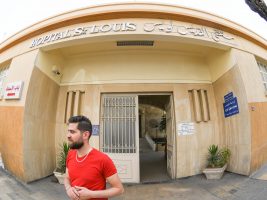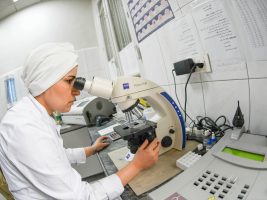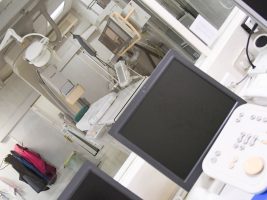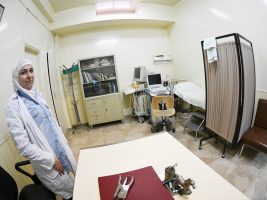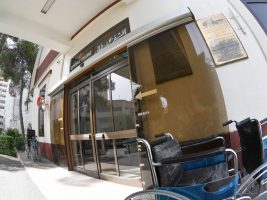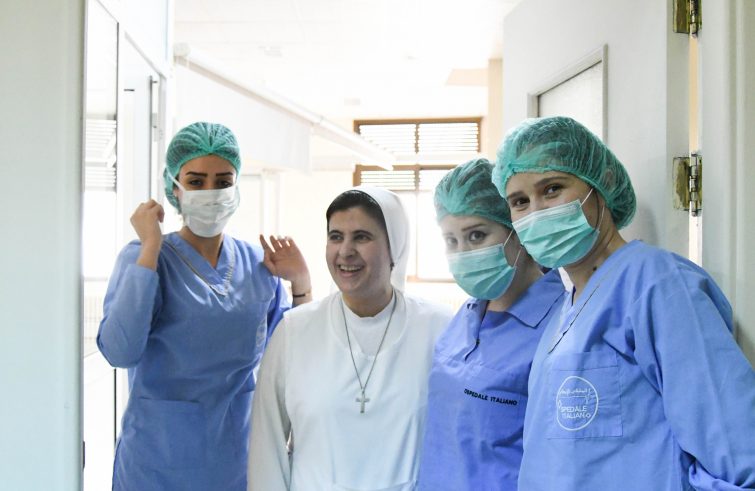
Now in its tenth year of war, Syria is also facing the threat of the coronavirus Covid-19. With over 500,000 dead, millions displaced, deteriorating infrastructure and, most importantly, ongoing combat in Idlib in the North West, the risk of a pandemic is more menacing than ever. In the past few weeks, President Bashar al Assad’s regime denied cases of infection only to backtrack when Health Minister Nizar Yazaji reported the first death from coronavirus. As of March 12, the government imposed a number of measures to prevent the spread of the virus: elections were postponed until May, borders were closed, public employment and public transport services decreased, schools, universities, mosques, churches, and even shops, cinemas and restaurants were shut down to avoid mass gatherings. Until a curfew was established from 6 pm to 6 am. Only authorized persons are allowed to go out, obviously including doctors and health care workers. For the moment, these measures would appear to control the pandemic: as of 2 April, the number of confirmed cases has risen to 16 with two dead. Yesterday Sana news agency reported that Mnin (governorate of Damascus), where a woman died of coronavirus, was placed under quarantine.
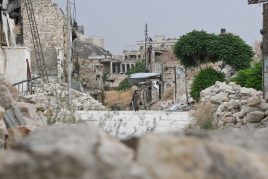 The WHO’s denunciation. The same news outlet reported the statement of Neamt Said Abd, representative of the World Health Organization in Syria, who called for an end to sanctions, detrimental to the health care system. He said that Syria is only at the beginning of the upward curve in the spread of the virus, so social distancing remains mandatory. This is also why national authorities have extended the curfew, today and tomorrow, from noon to 6 am. The WHO had already warned a few days ago that “The emergence of the virus in much more vulnerable countries with fragile health systems in the Region, including Syria and Libya, is of special concern. Of equal concern are global shortages in laboratory testing kits and protective equipment for health workers, as well travel restrictions and border closures. All of these are impeding WHO’s ability to provide urgently needed technical expertise and supplies to these and other countries.” In Syria, reports the WHO, “more than 9 years of war have heavily impacted the capacity of the health sector, with only 50% of public hospitals and 47% of public primary health care centres fully functional by the end of 2019. Additionally, thousands of qualified health professionals have fled the country.” For the WHO,
The WHO’s denunciation. The same news outlet reported the statement of Neamt Said Abd, representative of the World Health Organization in Syria, who called for an end to sanctions, detrimental to the health care system. He said that Syria is only at the beginning of the upward curve in the spread of the virus, so social distancing remains mandatory. This is also why national authorities have extended the curfew, today and tomorrow, from noon to 6 am. The WHO had already warned a few days ago that “The emergence of the virus in much more vulnerable countries with fragile health systems in the Region, including Syria and Libya, is of special concern. Of equal concern are global shortages in laboratory testing kits and protective equipment for health workers, as well travel restrictions and border closures. All of these are impeding WHO’s ability to provide urgently needed technical expertise and supplies to these and other countries.” In Syria, reports the WHO, “more than 9 years of war have heavily impacted the capacity of the health sector, with only 50% of public hospitals and 47% of public primary health care centres fully functional by the end of 2019. Additionally, thousands of qualified health professionals have fled the country.” For the WHO,
“an outbreak of Covid-19 in the Governorate of Idlib, Syria’s least-prepared territory for a pandemic, where fighting is taking place, could prove devastating for hundreds of thousands of internally displaced people living in overcrowded camps, highly exposed to infectious diseases.”
“The “Open Hospitals” project. Against the backdrop of a disastrous health system, the Open Hospitals project promoted by Card. Mario Zenari, Apostolic nuncio to Syria, together with AVSI, is designed to ensure free access to medical care for poor Syrians through the expansion of three non-profit Catholic hospitals: the Italian Hospital and the French Hospital in Damascus, and the St. Louis Hospital in Aleppo. Since 2017, the Project has ensured over 33700 medical treatments to vulnerable people. The goal, Covid-19 permitting, is to offer 50,000 healthcare services by the end of the year. AVSI is partnering with two dispensaries in Damascus to broaden the range of medical services.
- Foto Calvarese/SIR
- Foto Calvarese/SIR
- Foto Calvarese/SIR
- Foto Calvarese/SIR
- Foto Calvarese/SIR
“Only few tests, albeit targeted, have been carried out so far, analysed in the laboratory of the Ministry of Health with the support of the WHO”, Flavia Chevallard, manager of the AVSI Foundation project in Syria, told SIR.
“There is widespread fear of a further spread of the virus.
People also fear that there may be many more cases, not only in government-controlled Syria, but also and above all in the north-west, in Idlib. Everyone’s hope is that here the virus will be less virulent than in China, Italy, Spain or neighbouring Iran. If it were to happen, it would be a carnage. We have very little capacity to prevent or mitigate the outbreak. A lot of help is needed (www.avsi.org).”
Few beds and few ventilators. According to Save the Children “in North West Syria, there are a total of 153 ventilators and 148 beds in ICU, while nearly a million recently displaced people are living in overcrowded areas. In North East Syria, there are fewer than 30 ICU beds, only ten adult ventilators and just one paediatric ventilator for a population of 1.3 million.” “In our three hospitals – added Chevallard – we have a total of 24 ventilators used for various diseases, and 29 ICUs. Over the past few weeks we could only offer treatment to the most seriously ill so as to avoid overcrowding in hospitals and prevent contagion. In fact, our first priority is to protect healthcare workers by providing them with adequate protection, masks, gloves, protective clothing and disinfectants. The problem, however, is to find protective clothing on the market, as well as lung ventilators.
Here in Syria it’ s more difficult because the purchasing power of Syrian currency has plummeted. Prices have soared. International sanctions (EU-US, ed.’s note) complicate the delivery of diagnostic devices. Syria is a country at war, under an international embargo, and the Coronavirus pandemic is further exacerbating an already critical situation. Coping with this situation is an huge challenge.”
“We must be prepared.” “We must be prepared to face a spread of the virus. We are therefore endeavouring to obtain lung ventilators and protective devices”, the nuncio, Card. Zenari, told SIR.
“An outbreak of the infection would be a catastrophe, not only for the population but also for doctors and health care workers.”
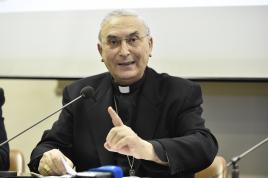 “At the present moment – the nuncio added – we are completely unprepared as the UN envoy for Syria, Geir Pedersen, told the Security Council at the end of March. We pray that this epidemic does not spread to Syria. It would be like repairing a dam failure with a bandaid.” The nuncio is also worried about 6 million internally displaced Syrians: “We must also consider where and how they live. At least one million live in makeshift camps lacking in hygiene and health care. How can we expect these poor people to wash their hands several times a day if they don’t even have water to drink?
“At the present moment – the nuncio added – we are completely unprepared as the UN envoy for Syria, Geir Pedersen, told the Security Council at the end of March. We pray that this epidemic does not spread to Syria. It would be like repairing a dam failure with a bandaid.” The nuncio is also worried about 6 million internally displaced Syrians: “We must also consider where and how they live. At least one million live in makeshift camps lacking in hygiene and health care. How can we expect these poor people to wash their hands several times a day if they don’t even have water to drink?
And let’s not forget the prison inmates.
A gesture of goodwill on the part of all battling factions that are holding them prisoner is urgently needed, even for them, at this stage of the spread of the virus.”

